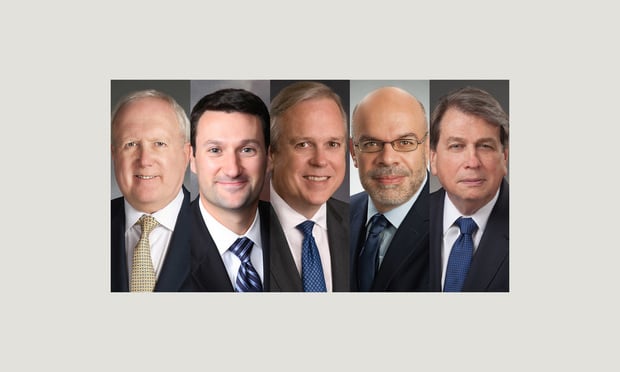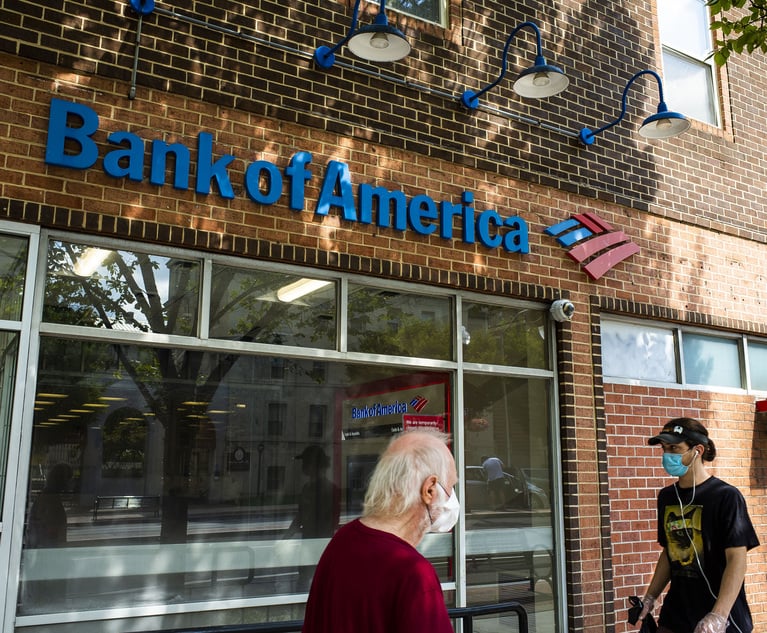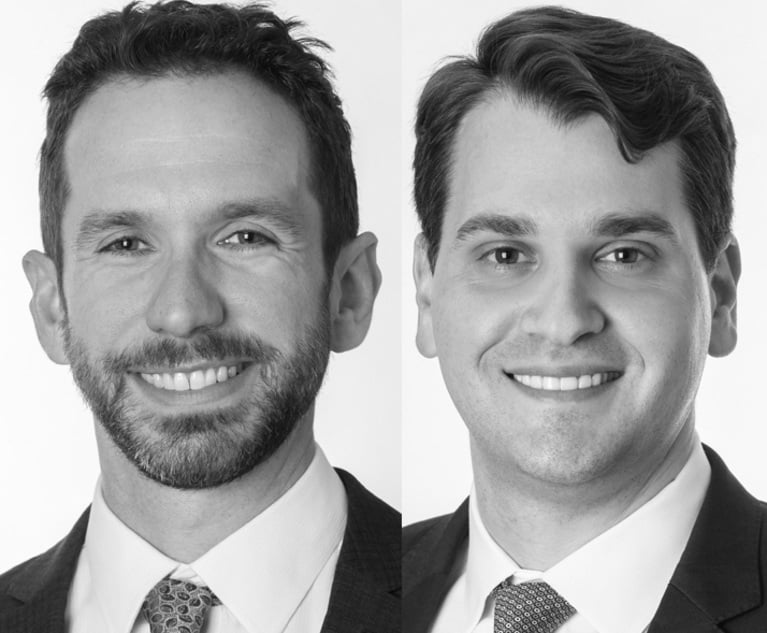There is an increasing number of scams associated with the outbreak of COVID-19.
On March 24, Deputy Attorney General Jeff Rosen issued a memorandum to law enforcement agencies regarding actions that may be taken in response to unlawful activities by unscrupulous individuals during the current COVID-19 outbreak. These law enforcement actions contemplate close coordination with state and local government agencies.
Rosen identified some of the illegal schemes related to COVID-19 fraud, such as scams to sell fraudulent apps and robocalls to solicit funds for COVID-19 supplies such as masks with no intent to deliver the products, to frauds promising fake cures or “immunity” kits.
Rosen noted the potential for fraudulent medical claims, including “fraudulent offers for free COVID-19 testing to obtain Medicare beneficiary information that is used to submit false medical claims for unrelated, unnecessary, or fictitious testing or services.” Similarly, he warned of “prescription drug schemes involving the submission of false medical claims for unnecessary treatments or other drugs that are marketed as purported cures for COVID-19.”
These concerns are very real. On the local level, James Bakker, the infamous convicted televangelist, advertised an allegedly fake silver solution that would cure the disease. The New York attorney general issued a cease and desist letter to Bakker.
Similarly, controversial talk show host Alex Jones was sent a cease and desist order by the New York attorney general to stop his promotion of products that Jones claimed kills the coronavirus.
Investment scams also are on the Department of Justice’s radar. On March 25, the U.S. Attorney for the Central District of California announced the first COVID-19 arrest of a California man who solicited investments in a company that he claimed “would be used to market pills to prevent coronavirus infections and an injectable cure for those suffering from COVID-19.”
On Wednesday, a U.K. citizen was charged in California with smuggling mislabeled drugs purporting to be a remedy for COVID-19. According to a news release and a criminal complaint filed in California, the man repackaged and sold pre-existing “Trinity Remedy Kits” even though such kits were not approved by the U.S. Food and Drug Administration for any use.
Also, incredibly, the U.S. attorney in the Central District of California charged a train engineer with derailing a train near the USS Mercy hospital ship at the Port of Los Angeles. He allegedly admitted such conduct was “to wake people up.” According to the news release, he said he believed the Navy ship was “suspicious” and did not believe “the ship is what they say it is for.” The incident caused the ship to leak a substantial amount of fuel. The incident is being investigated by the FBI’s Joint Terrorism Task Force and the Port of Los Angeles Police.
Perhaps most disturbing are robberies of patients, threats of violence against public officials and threats to infect other people. Among other things, Rosen noted that the department would treat such threats with the utmost seriousness, stating that threats to infect others could be treated as crimes under anti-terrorism statutes as coronavirus could be deemed a “biological agent” under 18 U.S.C. § 178(1), which carries severe penalties.
Other examples of crimes such as “coughing” on others to spread the virus were reported. The New Jersey attorney general charged a man with terrorist threats after he allegedly attempted to spread the virus by coughing on another person.
In Connecticut, an orthopedic surgeon was issued a criminal summons for “intentionally coughing” on other medical professionals, and in Pennsylvania a woman “intentionally contaminated” grocery items by coughing and spitting on them while claiming to be sick.
Rosen listed a panoply of federal statutes that are available to charge individuals or entities engaged in any such activity. These include but are not limited to: mail fraud, wire fraud , computer fraud, health care fraud, identification fraud and fraud in connection with major disasters and emergencies.
Rosen also warned the sale of fake or misbranded drugs or purported cures could be prosecuted under a misbranding charge, the Food, Drug and Cosmetic Act or the Consumer Product Safety Act. He cautioned against anti-competitive behavior to “fix prices, rig bids or allocate markets” in violation of the Sherman and Clayton antitrust acts.
On the same day he issued his memorandum, Attorney General Robert Barr issued a memorandum stating that it is illegal for individuals or businesses to acquire medical supplies designated by the U.S. Secretary of Health and Human Services and devices in scarce supply to hoard them or sell them for excessive prices. According to Rosen and Barr, such conduct may be prosecuted under the Defense Production Act.
Other agencies have announced increased enforcement efforts. On March 24, the Securities and Exchange Commission stated, “The agency is actively monitoring our markets for frauds, illicit schemes and other misconduct affecting U.S. investors related to COVID-19 and,as the circumstances warrant will issue trading and use enforcement tools as appropriate.”
It has been reported that at least two U.S. senators, Richard Burr of North Carolina and Kelly Loeffler of Georgia, are being examined for their stock trades regarding COVID-19. These trades may implicate the Stop Trading on Congressional Knowledge Act of 2012, which bans insider trading by members of Congress. These are not easy cases to prove as they require proof of material inside information in advance of trading.
Rosen noted the potential for cybercrimes wherein malicious malware can be implanted into victim recipients’ computers. Forbes reported eEven the popular Zoom application has been infiltrated by hackers.
The Department of Homeland Security’s cybersecurity and infrastructure security agency has also warned companies and employees working remotely to take precautions against cybercriminals by exercising caution in opening or reviewing any emails with a COVID-19 related subject line, attachment or hyperlink, as well as in responding to any social media pleas, text messages or phone calls related to COVID-19.
The Department of Justice has similarly issued public warnings related to reports of phishing emails posing as the World Health Organization or the U.S. Centers for Disease Control and Prevention, and malicious websites and apps purporting to share virus-related information for purposes of gaining access to devices and/or in efforts to download malware or ransomware.
The surge of federal relief amounting to hundreds of billions of dollars hopefully will find its way to businesses, communities and individuals in need. However, the clear message from federal and state law enforcement is that crooks and swindlers taking illegal advantage of others during the COVID-19 crisis will face certain investigation and prosecution.
Mark P. Schnapp, Matthew S. Chester, Michael E. Clark, Aldo M. Leiva and Joe D. Whitley are members of Baker Donelson’s government enforcement and investigations group.
NOT FOR REPRINT
© 2024 ALM Global, LLC, All Rights Reserved. Request academic re-use from www.copyright.com. All other uses, submit a request to [email protected]. For more information visit Asset & Logo Licensing.


 Mark Schnapp (from left), Matthew Chester, Michael Clark, Aldo Leiva and Joe D. Whitley, Baker Donelson
Mark Schnapp (from left), Matthew Chester, Michael Clark, Aldo Leiva and Joe D. Whitley, Baker Donelson







